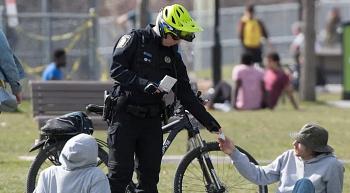Why Canadians should fight tooth and nail against proof-of-immunity cards
This column is an opinion by Françoise Baylis and Natalie Kofler. Baylis is University Research Professor at Dalhousie University in Halifax. Kofler is a molecular biologist and lecturer at the Center for Bioethics at Harvard Medical School, and the founding director of Editing Nature. For more information about CBC's Opinion section, please see the FAQ.
As governments turn their attention to the challenge of lifting restrictions on business in an effort to restart their economies, some are considering the merits of so-called "immunity passports" as a way to control the risk of COVID-19 infection.
Also referred to as "immunity certificates" or "immunity cards," the idea is that such documents would be issued to those who have survived COVID-19 and tested positive for antibodies to SARS-CoV2 (the new coronavirus that causes COVID-19) as part of efforts to buy more time for vaccine development. Survivors with a presumed acquired immunity would be allowed to return to work and resume social interactions, secure in the knowledge that they were neither at risk of infection nor of spreading the disease.
This idea has recently been publicly championed by a number of people in nations around the world, including Canada's Dr. Kumanan Wilson, who predicts that proof of immunity will be required in the future, if not for return to work, then for cross-border travel and for attendance at mass sporting events, music concerts, and live theatre. Dr. Wilson said in a CBC interview that he hopes to partner with the Canadian government to develop a system that shows who is protected once immunity tests become available.
Meanwhile, in a clear effort to pre-empt the introduction of immunity passports, on April 24 the World Health Organization (WHO) issued a global warning against their use. This guidance highlighted the fact that there is "currently no evidence that people who have recovered from COVID-19 and have antibodies are protected from a second infection." While survivors likely would have some immunity to the novel coronavirus, the WHO emphasized that there is incomplete knowledge about the level of protection they might have or how long it might last.
For now, Canada is among the countries that will heed the WHO's warning; Prime Minister Justin Trudeau has said "we need to err on the side of more caution."





